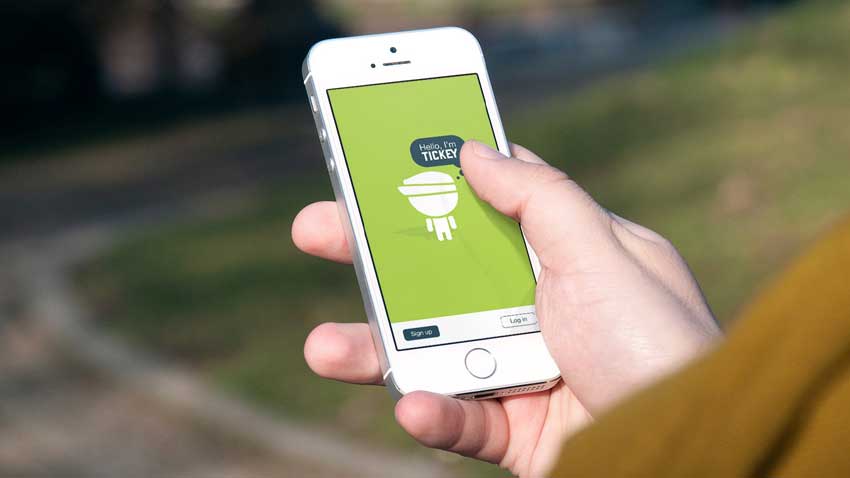The Seedstars World Company has now won the national round of the international entrepreneurship contest for city transport e-tickets. When the team members faced all the difficulties at buying tickets across the big city, noticing at the same time that smartphones were used around all the time, the idea occurred. City transport voyages could be paid this way.
Co-founder and CEO of the software company Dimitar Dimitrov says that Tickey – the application developed, works via proximity sensors, which can identify a person’s location – on a bus or in a subway station. A single touch of the screen allows the transport ticket to be paid. The payment can be done via a bank card, as the users should insert their data in advance. The other option is via the mobile operator cell phone bill – the number and price of tickets bought will be marked in that bill.
 The application’s mass usage is expected to begin in September in Burgas and in Sofia by the end of the year. The application will be totally free. The users pay only the price of the ticket, as it won’t be different than the current one. There will be also an option for cheaper tickets at a certain point, compared to the prices of the paper ones or of cards.
The application’s mass usage is expected to begin in September in Burgas and in Sofia by the end of the year. The application will be totally free. The users pay only the price of the ticket, as it won’t be different than the current one. There will be also an option for cheaper tickets at a certain point, compared to the prices of the paper ones or of cards.
Does the application support other languages besides Bulgarian – English, for instance? Is any other additional information envisaged for foreigners and tourists – schedules, routes etc.?
“The application currently supports Bulgarian and English languages, but it will also support nearly all European languages. Thus one will be able to use it in any country and in one’s own language. It also includes the so-called planning module for routes, along with a map of the respective city and a schedule of city transport. Tourists will be able to use the Sofia map, in order to find landmarks and other interesting spots."
What sort of devices support the application? Do all the operational systems support it?
“The application is supported by Android phones – versions, better than 4.3 and also all iOS devices, made by Apple. Google has recently introduced its own sensor proximity standard, named Eddystone, so it should be able to be used by Android versions, lower than 4.3. We also expect that the Microsoft will introduce an option for those proximity sensors’ usage at its new operational system for cell phones’ version and we use those in our application.”
“We are developing an application for an American city, targeting parents, who want to send their kids to school or to lessons with other people’s cars. Security requirements are much higher in such case, as one should know who the child is with in the absence of the parent. We have currently focused mainly on city transport, but our application can also be used for museum entry fees, at places like Disneyland etc. – basically anywhere, where tickets should be bought on the go and not in advance.”
English version: Zhivko Stanchev
From fear and doubts to joy and support – Bulgarians react differently to the upcoming introduction of the euro on January 1, 2026. For some, it is a logical step towards Bulgaria’s integration into the EU with promises of stability..
Teodora Byalkova joined the Bulgarian Sunday school "Sts. Cyril and Methodius" in Athens in the 2022/23 school year. At that time, she also organized the dance formation "Ludi-Mladi" for current and graduated students. Since then, the..
The village of Novo Selo is located on the road between Veliko Tarnovo and Sevlievo. Here archaeologists have found tools used by people during the Chalcolithic, which testify to an active economic life in the area. There is also..
Timișoara, a large multicultural city in western Romania, is the center of the historical community of the Banat Bulgarians . The members of this..
In Gabrovo – a city in the geographical center of Bulgaria, once described as the Bulgarian Manchester, but today facing demographic..
The project “The Charisma of Bulgarians” is, in essence, a bridge between different worlds . With it, Dimitrinka Yordanova Komanduci - psychologist,..

+359 2 9336 661
